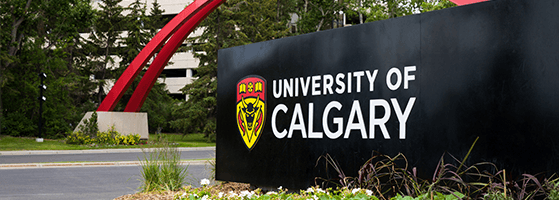28 April, 2020
Academic Integrity in Canada during COVID-19: Reflections from the University of Calgary

Author
Sarah Elaine Eaton
Assistant Professor and Educational Leader in Residence, University of Calgary, Canada
In this blog, I offer reflections on how my home institution has handled the COVID-19 crisis from an academic integrity perspective.
In Canada, higher education quality assurance is monitored at the provincial rather than the national level. The University of Calgary is situated in the province of Alberta, where quality assurance is overseen by the Campus Alberta Quality Council, that operates at arm’s length from the government, but makes recommendations to the provincial Ministry of Advanced Education.
Our University has a systematic, organised emergency response system. We are in a unique position in that we’ve already responded to a crisis, during the flood of 2013, which occurred during our Spring term that year. I remember teaching a course at the time as students were being evacuated from their homes or hosting evacuees who had been displaced. Although it was a localised event, it was enough for the University to develop thoughtful plans about how to respond in a crisis.
The University’s initial response
Our institutional Crisis Management Team (CMT) was established very early on during the COVID-19 pandemic. In an early virtual town hall conducted by the executive leadership team, campus stakeholders were informed that the CMT was meeting daily or multiple times per day.
Decisions related to shuttering, moving classes online, etc. were made by the CMT in consultation with our provincial ministry of education, public health officials and heads of other institutions.
Last week, the Provost communicated that CMT moved to weekly meetings, with additional meetings added as needed, which signaled to the campus community that management of the crisis had moved into what we call ‘maintenance mode’.
From my perspective, it is clear that extensive effort is being put into making evidence-informed decisions in collaboration with external bodies such as the ministry of higher education and our senior public health officers.
Maintaining academic integrity during COVID-19
Our Provost, Dr Dru Marshall, encouraged the entire University to ‘start from a place of trust’. There was a strong emphasis on putting health and safety first, which aligns with our institutional mandate of prioritising people, as articulated in our Academic Plan.
The Taylor Institute for Teaching and Learning quickly became a key unit to provide support during the transition to remote learning. Two websites were developed to provide direction and guidance: the Learning Continuity website is student focused, and its companion site, Teaching Continuity, is directed towards faculty and teaching assistants (TAs).
A specific website was developed for Academic Integrity in Online Learning, with links to additional resources to help staff. In addition, a series of virtual training sessions have been offered on a weekly basis since March. Faculty and TAs, as well as members of the public, can attend at no cost. Most sessions have been offered more than once to provide opportunities for as many people as possible to improve their teaching and learning.
On 22 March, the University implemented a change to final grades for the Winter 2020 term, giving students the option of their usual letter grades or Credit/Fail. On 22 April, it announced a return to the regular grading system for the Spring 2020 semester onwards, so as not to affect students’ grade point average for an extended period of time.
Stepping back – and remembering our principles
Our President and Provost continually draw us back to our institutional Strategic Plan and Academic Plan, which call on us to prioritise people. In general, I would say our leadership has provided clear and open communications about the University’s response to the crisis. This has included regular updates via email, web content updated daily, virtual town halls, and interactive webinars to help teaching staff make the transition to remote learning with a focus on effective teaching and ethical assessment. I’m quite proud of how our leadership has been handling this. It hasn’t been perfect because there is no playbook for this. But I would say it has been thoughtful, coordinated and responsive.
Educational leaders – and getting our priorities right
Last year, our University created an innovative suite of roles called Educational Leaders in Residence (ELRs). We were the first of any university in Canada to create such roles, although others are now starting to follow suit. Through my role as ELR, Academic Integrity, I’ve had the opportunity to contribute to conversations about what academic integrity looks like during a crisis and how we can support our students and staff. I’ve also delivered webinars and collaborated with colleagues to contribute to virtual resources and website content to promote academic integrity.
In terms of evaluating these changes, we do not yet have much data. However, it seems to me that every change we are making in response to the crisis is an effort to be student-focused and compassionate. In times of crisis, leadership styles and priorities come into sharper focus. Our institutional leaders have continued to insist on putting people first. In turn, this positively affects how our students learn.
